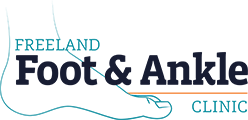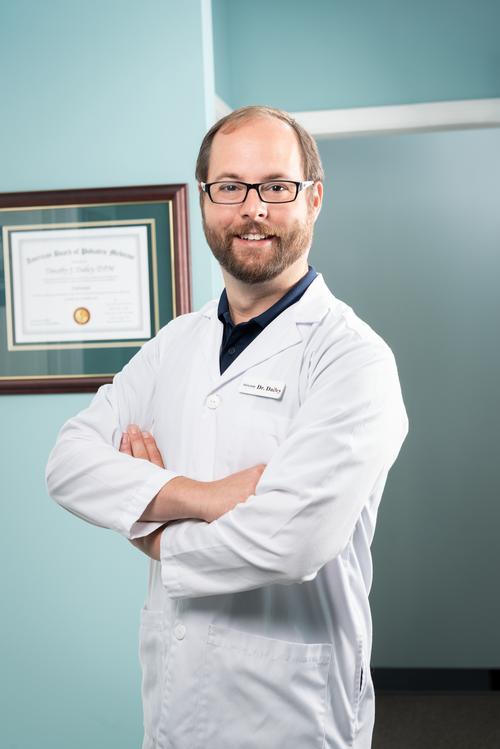Getting good at almost any complex activity requires a lot of time, patience, and practice, whether you’re 30 years old or 13 months old! Take learning to walk. Kids usually pick up the basics (at least well enough to not constantly fall over) by age 1 or 2, but it still takes many more years of physical development before that toddling, waddling gait grows into something that looks more like how an adult moves and walks.
That said, while you shouldn’t expect picture-perfect locomotion for your little cruiser, certain problems and abnormalities in gait should be assessed by a foot doctor, just to make sure everything is developing correctly. Sometimes childhood gait problems correct themselves, and sometimes they don’t. But either way, identifying and correcting more serious problems early helps keep children on a trajectory toward a lifetime of healthy, pain-free walking!
Common childhood gait problems include:
- Intoeing. Toes point inward when walking. May be caused by an abnormal bone rotation in the feet themselves, the shinbone, and/or the femur (thighbone).
- Out-toeing. Essentially the opposite of intoeing, though much rare. Toes point outward when walking due to rotation in feet, shins, or thighs.
- Knock knees. Knees angle inward, or even touch one another, when the legs are straightened.
- Bow legs. Legs bow outward at the knee.
- Toe walking. The child walks on the toes or front part of the foot exclusively, rather than the whole foot.
- Flat feet. The arch flattens temporarily when bearing weight (flexible flatfoot), or remains flat all the time (rigid flatfoot).
- Limping. Kids may limp for a number of reasons, though it’s usually due to temporary pain from a minor injury. More chronic limping may need a closer look.
Again, gait abnormalities in young children do not always need treatment. In many cases, kids “grow out” of them when they reach a certain age. But that doesn’t always happen, either. If you see anything that looks painful, awkward, or unusual, the smart choice is to take your little one to see a podiatrist for an evaluation. This will help catch any more serious underlying problems that need to be addressed immediately, as well as provide a basis for comparison to see if the abnormalities continue to improve over time.
At Freeland Foot & Ankle Clinic, Dr. Timothy Dailey loves working with patients of all ages and helping them maintain healthy, happy feet! Give us a call at (989) 695-6788 today!

